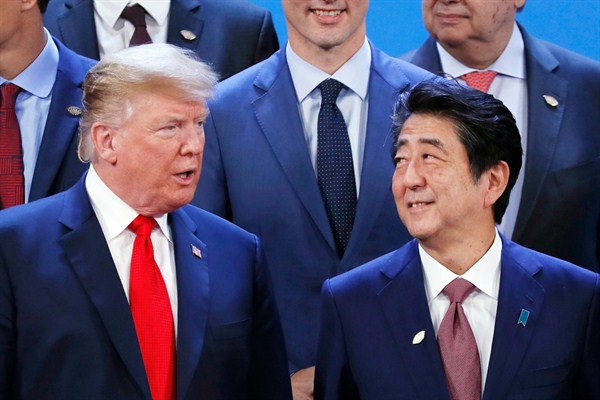This weekend, Japanese Prime Minister Shinzo Abe welcomes world leaders to Osaka for the annual summit of the Group of 20. This club of major economies has been at the forefront of global governance since November 2008, when U.S. President George W. Bush convened an emergency committee to help rescue a world plummeting into the financial and economic abyss. The G-20’s ambit has since broadened to encompass an ever-expanding range of global issues.
The Osaka summit continues that trend. Japan set an ambitious agenda for its presidency of the G-20, which rotates every year. Major themes include removing structural impediments to growth, reforming the global trading system, adapting the world economy to the data revolution, combating climate change and plastics pollution, adjusting employment policy to reflect aging societies, empowering women in the workforce, advancing sustainable development and achieving universal health coverage. This sprawling program reflects the G-20’s perceived centrality as a global steering group, as well as the constant temptation of successive host nations to add signature initiatives to the G-20’s preexisting priorities.
If experience is any guide, the real action will take place in the bilateral meetings between world leaders and impromptu discussions on pressing global crises, rather than formal sessions. Still, the official themes offer enough of an appetizer:

